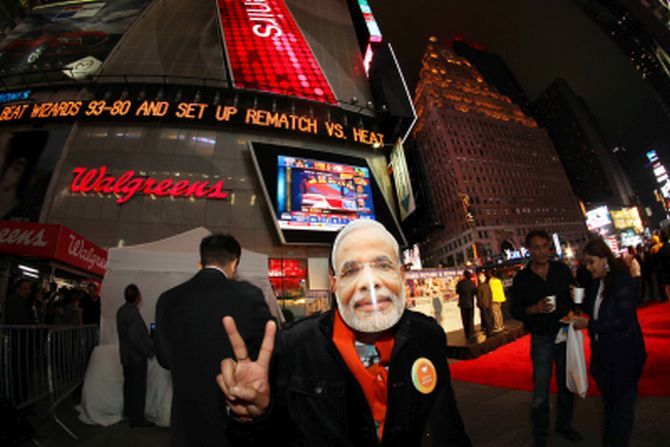The Indian diaspora remain bullish despite single-digit equity market returns since May 2014, says Pavan Burugula.

The Indian diaspora has taken a liking to equities under the Narendra Modi-led National Democratic Alliance (NDA) government.
Total equity assets owned by non-resident Indians (NRIs) have jumped nearly three fold to Rs 2,675 crore between December 2013 and December 2016, data provided by the Securities and Exchange Board of India (Sebi) showed.
Although the Modi-government came to power in May 2014, the stock markets had started moving up in December 2013 in anticipation of a change of guard. The value of NRI holding in December 2013 stood at around Rs 900 crore. The increase in NRI assets is far higher than the 30 per cent gains on the Benchmark Sensex during this period.
Market players say they have seen an increase in new NRI accounts as well as improved flows in the existing accounts since the government took charge.
They attribute the optimism to improvement in the macroeconomic fundamentals of the country, confidence in the new government and buoyancy in the primary markets.
NRI investments have persisted even though the equity market returns since May 2014 have been in single-digits.
The Sensex had rallied close to 40 per cent between December 2013 and April 2014. However, a mix of global and domestic headwinds has taken some steam out of the rally. The Sensex lost more than 5 per cent during 2015, while it ended 2016 with near-zero returns.
"Unlike foreign institutional investors (FIIs), NRIs don't follow market trends. Their investment pattern is largely based on the confidence they have on the market and the government. This trend is expected to continue in the days to come as the government unveils various reforms such as GST," said Rajesh Cheruvu, head of equities, Sanctum Wealth Management.
Buoyancy in the primary markets was another important reason for the increased participation of NRIs in the Indian markets, as some of the newcomers have yielded stellar returns, experts said. In last two years, primary markets have witnessed IPOs worth more than Rs 40,000 crore.
Experts say India's high economic growth amid slowing global growth too might have attracted NRI investments.
"India is currently growing at a brisk pace. Interest rates have been on the lower end globally in the last few years. Hence, India equities looked attractive to invest," said Rajeev Thakkar, CIO, Parag Parikh Financial Advisory Services.
However, Thakkar added the scenario could change going forward as increasing interest rates in US and flattish performance of Indian equities could narrow the attractiveness of the market.
Market participants say there is even bigger potential in the NRI segment, which brokers are unable to tap due to the operational difficulties arising from current regulatory framework.
According to current rules, NRIs cannot invest in the Indian equity markets directly but they have to enroll themselves with the banks under portfolio investment scheme (PIS).
"The problem with the scheme is unlike other investors the money of NRIs lies with the banks not brokers. Hence, every time an investment is to be made, the broker needs to contact the bank, which in turn releases the money. That's the reason why brokers don't push hard for NRI clients. However, if they are allowed to trade just the way retail investors do, I think we will be able to attract more NRI investors into equities," said Nitin Kamath, founder, Zerodha.












 © 2025
© 2025